Tag Archives: National Oceanic and Atmospheric Administration
Scallop Survey halted – R/V Hugh R. Sharp Losing the HabCam will create uncertainty in the assessment
 Shortly after dawn last Friday, the R/V Hugh R. Sharp was towing a sophisticated array of sensors and cameras along the bottom of the Atlantic Ocean. Then suddenly, the research vessel shuddered. Within seconds, the line went slack, and the team of scientists and volunteers realized the $450,000 camera system was lost, somewhere off the Virginia coast. Officials at the National Oceanic and Atmospheric Administration said they believe the cable connecting to the camera system, known as HabCam, snagged on the remains of the Bow Mariner, a well-known wreck in the area. “This will create uncertainty in the scallop assessment, meaning there’s a greater chance that we’ll catch too few scallops, which will be a short-term loss, or too many, which will be a long-term loss,” said Drew Minkiewicz, an attorney for the Fisheries Survival Fund, a trade group that represents scallopers throughout the Northeast. Read the rest here 10:12
Shortly after dawn last Friday, the R/V Hugh R. Sharp was towing a sophisticated array of sensors and cameras along the bottom of the Atlantic Ocean. Then suddenly, the research vessel shuddered. Within seconds, the line went slack, and the team of scientists and volunteers realized the $450,000 camera system was lost, somewhere off the Virginia coast. Officials at the National Oceanic and Atmospheric Administration said they believe the cable connecting to the camera system, known as HabCam, snagged on the remains of the Bow Mariner, a well-known wreck in the area. “This will create uncertainty in the scallop assessment, meaning there’s a greater chance that we’ll catch too few scallops, which will be a short-term loss, or too many, which will be a long-term loss,” said Drew Minkiewicz, an attorney for the Fisheries Survival Fund, a trade group that represents scallopers throughout the Northeast. Read the rest here 10:12
Ocean acidification: yet another wobbly pillar of climate alarmism
 Last year, no fewer than 600 academic papers were published on the subject, so it must be serious, right? First referenced in a peer-reviewed study in Nature in 2003, it has since been endorsed by scientists from numerous learned institutions including the Royal Society, the National Oceanic and Atmospheric Administration and the IPCC. Even the great David Attenborough — presenter of the Great Barrier Reef series — has vouched for its authenticity,,, Howard Browman, a marine scientist for 35 years, has published a review in the ICES Journal of Marine Science of all the papers published on the subject. His verdict could hardly be more damning. Read the article here 09:51
Last year, no fewer than 600 academic papers were published on the subject, so it must be serious, right? First referenced in a peer-reviewed study in Nature in 2003, it has since been endorsed by scientists from numerous learned institutions including the Royal Society, the National Oceanic and Atmospheric Administration and the IPCC. Even the great David Attenborough — presenter of the Great Barrier Reef series — has vouched for its authenticity,,, Howard Browman, a marine scientist for 35 years, has published a review in the ICES Journal of Marine Science of all the papers published on the subject. His verdict could hardly be more damning. Read the article here 09:51
As Pacific sardine collapse worsens, scientists worry about possible ripple in the ecosystem
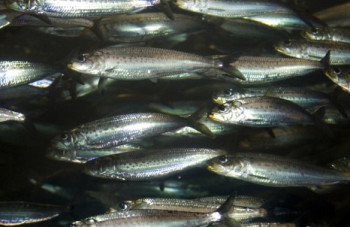 Nearly a year into a West Coast sardine fishing ban enacted to protect the collapsing population, the fish formerly worth more than $8 million to Oregon’s economy have shown no signs of a comeback. New federal research indicates numbers of the small, silvery, schooling fish have plummeted further than before the fishing moratorium, dashing any hope of lifting it in 2016. With the current sardine population hovering at 7 percent of its 2007 peak, fishermen now say they expect to wait a decade or more to revive the fishery. “I don’t want to take a pessimistic view, but I would think we’ll be shut down until 2030,” said Ryan Kapp, a Bellingham, Washington, fisherman who advises the Pacific Fishery Management Council on sardines and other fish. Read the article here 15:33
Nearly a year into a West Coast sardine fishing ban enacted to protect the collapsing population, the fish formerly worth more than $8 million to Oregon’s economy have shown no signs of a comeback. New federal research indicates numbers of the small, silvery, schooling fish have plummeted further than before the fishing moratorium, dashing any hope of lifting it in 2016. With the current sardine population hovering at 7 percent of its 2007 peak, fishermen now say they expect to wait a decade or more to revive the fishery. “I don’t want to take a pessimistic view, but I would think we’ll be shut down until 2030,” said Ryan Kapp, a Bellingham, Washington, fisherman who advises the Pacific Fishery Management Council on sardines and other fish. Read the article here 15:33
New England Fishermen face devastating cod cuts
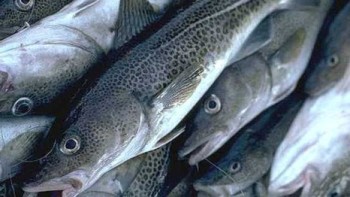 New Bedford’s commercial fishing industry — battered by last month’s arrest of magnate Carlos Rafael on federal conspiracy charges, last week’s drug raids on the waterfront and ongoing monitoring costs — took another punch to the gut this week, as government regulators proposed new cuts to cod catches that could take effect May 1. “Those cuts will be devastating to the groundfishing fleet of New Bedford, and the whole New England coast,” said John Haran, manager of groundfish Sector 13. The National Oceanic and Atmospheric Administration (NOAA), in conjunction with the New England Fishery Management Council, released a proposed update Monday to the federal management plan for the northeastern fishery. Read the rest here 20:45
New Bedford’s commercial fishing industry — battered by last month’s arrest of magnate Carlos Rafael on federal conspiracy charges, last week’s drug raids on the waterfront and ongoing monitoring costs — took another punch to the gut this week, as government regulators proposed new cuts to cod catches that could take effect May 1. “Those cuts will be devastating to the groundfishing fleet of New Bedford, and the whole New England coast,” said John Haran, manager of groundfish Sector 13. The National Oceanic and Atmospheric Administration (NOAA), in conjunction with the New England Fishery Management Council, released a proposed update Monday to the federal management plan for the northeastern fishery. Read the rest here 20:45
How In Trouble Are Bluefin Tuna, Really? Controversial Study Makes Waves with Enviro’s
 A group of scientists is now making the case that Atlantic bluefin may be more resilient to fishing than commonly thought — and perhaps better able to rebound from the species’ depleted state. But the study is controversial. Several tuna researchers we spoke with warned that the results are preliminary, and it’s much too soon to use them to guide how fisheries are managed. In an email exchange with The Salt, Safina writes, “[T]heir main concern is not recovery, not conservation, but how their findings can allow additional exploitation and more stress to be inflicted on a very beleaguered creature.” Read the article here 08:10
A group of scientists is now making the case that Atlantic bluefin may be more resilient to fishing than commonly thought — and perhaps better able to rebound from the species’ depleted state. But the study is controversial. Several tuna researchers we spoke with warned that the results are preliminary, and it’s much too soon to use them to guide how fisheries are managed. In an email exchange with The Salt, Safina writes, “[T]heir main concern is not recovery, not conservation, but how their findings can allow additional exploitation and more stress to be inflicted on a very beleaguered creature.” Read the article here 08:10
The affidavit in support of a criminal complaint charging CARLOS RAFAEL and DEBRA MESSIER
AFFIDAVIT OF SPECIAL AGENT RONALD MULLET … I submit this affidavit in support of a criminal complaint charging CARLOS RAFAEL 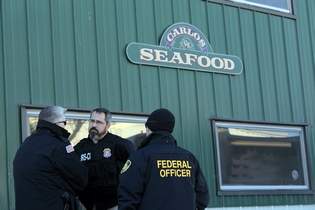 and DEBRA MESSIER with a, making false entries in records with the intention of impeding and influencing the proper administration of matters within the jurisdiction of National Oceanic and Atmospheric Administration, (NOAA), and other federal agencies,,,, Get ready to read some mind blowing info. Read the affidavit here 09:16
and DEBRA MESSIER with a, making false entries in records with the intention of impeding and influencing the proper administration of matters within the jurisdiction of National Oceanic and Atmospheric Administration, (NOAA), and other federal agencies,,,, Get ready to read some mind blowing info. Read the affidavit here 09:16
Moulton reports his letter spurs Reforms to NOAA observer program
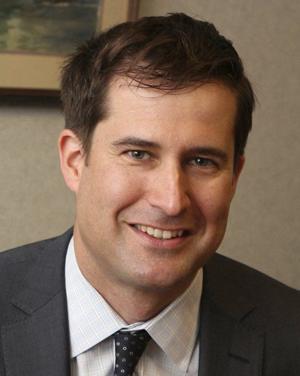 Congressman Seth Moulton (D-MA) commended the National Oceanic and Atmospheric Administration (NOAA) for agreeing to make important reforms to the Northeast Fishery Observer Program (NEFOP) for lobster fishing. In August, Moulton, along with Senator Elizabeth Warren, Senator Ed Markey, Congressman Stephen Lynch and Congressman Bill Keating sent a letter to NOAA that called on the agency to address issues with the observer program and its impact on the New England lobster industry. The letter asked for an action plan from NOAA for specific cost, sustainability and safety concerns raised by the region’s lobstermen. Read the rest here 12:44
Congressman Seth Moulton (D-MA) commended the National Oceanic and Atmospheric Administration (NOAA) for agreeing to make important reforms to the Northeast Fishery Observer Program (NEFOP) for lobster fishing. In August, Moulton, along with Senator Elizabeth Warren, Senator Ed Markey, Congressman Stephen Lynch and Congressman Bill Keating sent a letter to NOAA that called on the agency to address issues with the observer program and its impact on the New England lobster industry. The letter asked for an action plan from NOAA for specific cost, sustainability and safety concerns raised by the region’s lobstermen. Read the rest here 12:44
State legislators call on Brown to declare crab fishery disaster
A group of nine California legislators sent a bipartisan letter to Gov. Jerry Brown on Monday calling for him to declare a crab fishery disaster in order to help secure financial assistance for the state’s impacted fishing industry. The state legislators’ letter urges Brown to ask U.S. Secretary of Commerce to declare a fishery disaster through the National Oceanic and Atmospheric Administration. If approved, the designation would allow the federal government to issue disaster assistance as allowed under two federal statutes — the Magnuson-Stevens Fishery Conservation and Management Act and the Interjurisdictional Fisheries Act. Read the article here 08:20
Benefits of fish farms in Gulf debated
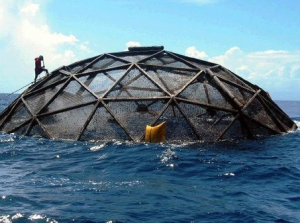 Fish farming is contentious, with fishermen and environmentalists warning that new rules supporting it could harm the marine environment and put fishermen out of work. Federal regulations were issued this week, allowing the farming of fish in federal waters of the Gulf of Mexico. Kathryn Sullivan, administrator of the National Oceanic and Atmospheric Administration, said the Gulf rules could spur similar rules in other U.S. waters and help the U.S. meet its seafood demands. Glen Brooks, president of the Gulf Fishermen’s Association, a group of commercial fishermen, said his group fought against fish farming. Read the article here 10:56
Fish farming is contentious, with fishermen and environmentalists warning that new rules supporting it could harm the marine environment and put fishermen out of work. Federal regulations were issued this week, allowing the farming of fish in federal waters of the Gulf of Mexico. Kathryn Sullivan, administrator of the National Oceanic and Atmospheric Administration, said the Gulf rules could spur similar rules in other U.S. waters and help the U.S. meet its seafood demands. Glen Brooks, president of the Gulf Fishermen’s Association, a group of commercial fishermen, said his group fought against fish farming. Read the article here 10:56
Republican presidential candidate John Kasich to meet with N.H. fishermen
 The Ohio governor will meet privately with commercial and recreational fishermen and industry members from 3 to 4 p.m. at Yankee Fisherman’s Cooperative after he holds a noon town hall event at the Lane Memorial Library in Hampton. Kasich became aware of the fishermen’s concern about regulations via a Wall Street Journal op-ed written by David Goethel. The op-ed ran Dec. 27 and detailed Goethel’s current federal lawsuit against the U.S. Department of Commerce and the National Oceanic and Atmospheric Administration. Read the article here 16:18
The Ohio governor will meet privately with commercial and recreational fishermen and industry members from 3 to 4 p.m. at Yankee Fisherman’s Cooperative after he holds a noon town hall event at the Lane Memorial Library in Hampton. Kasich became aware of the fishermen’s concern about regulations via a Wall Street Journal op-ed written by David Goethel. The op-ed ran Dec. 27 and detailed Goethel’s current federal lawsuit against the U.S. Department of Commerce and the National Oceanic and Atmospheric Administration. Read the article here 16:18
Fishermen on the Hook to Pay for Their Own Regulators
 Few professions are as significant to New England’s economy and history as fishing. Yet the ranks of groundfish fishermen have dwindled so much that we’re now an endangered species. The causes are many—but the one now threatening us with extinction is the federal government. Along with one other plaintiff, I’m suing the National Oceanic and Atmospheric Administration to stop it from sinking New England’s groundfish industry for good. Read the article here by David Goethel. 09:11
Few professions are as significant to New England’s economy and history as fishing. Yet the ranks of groundfish fishermen have dwindled so much that we’re now an endangered species. The causes are many—but the one now threatening us with extinction is the federal government. Along with one other plaintiff, I’m suing the National Oceanic and Atmospheric Administration to stop it from sinking New England’s groundfish industry for good. Read the article here by David Goethel. 09:11
Astoria drops below Newport in commercial catch
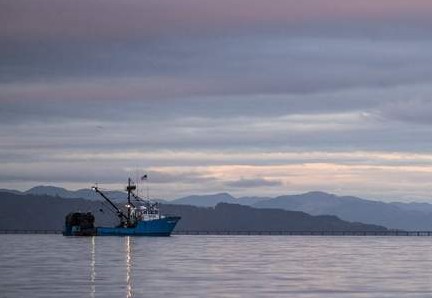 Astoria slipped below Newport last year as the dominant West Coast port for commercial fishing. Newport landed 124 million pounds of commercial fish, the 11th highest mark by quantity in the nation, while Astoria netted 122 million pounds, the 12th highest. Westport, Washington, came in at 100 million pounds, or 13th highest. The catch figures were released today by the National Oceanic and Atmospheric Administration, which compiles an annual fisheries report that includes the quantity and value of commercial fishery landings. Read the rest here 16:58
Astoria slipped below Newport last year as the dominant West Coast port for commercial fishing. Newport landed 124 million pounds of commercial fish, the 11th highest mark by quantity in the nation, while Astoria netted 122 million pounds, the 12th highest. Westport, Washington, came in at 100 million pounds, or 13th highest. The catch figures were released today by the National Oceanic and Atmospheric Administration, which compiles an annual fisheries report that includes the quantity and value of commercial fishery landings. Read the rest here 16:58
Tri Marine is asking for an emergency exemption for American Samoa fishing fleet
 Earlier this year, as a conservation measure, the National Oceanic and Atmospheric Administration closed off an area of ocean to the U.S flagged fishing fleets. The closure means Tri Marine’s fleet of 12 purse seiners based in American Samoa will struggle to supply enough tuna to Samoa Tuna Processors cannery. Tri Marine is asking for an emergency exemption based on the limited fishing grounds now available to the American Samoa-based purse seiner fleet. Read the rest here 14:48
Earlier this year, as a conservation measure, the National Oceanic and Atmospheric Administration closed off an area of ocean to the U.S flagged fishing fleets. The closure means Tri Marine’s fleet of 12 purse seiners based in American Samoa will struggle to supply enough tuna to Samoa Tuna Processors cannery. Tri Marine is asking for an emergency exemption based on the limited fishing grounds now available to the American Samoa-based purse seiner fleet. Read the rest here 14:48
Saltonstall-Kennedy Grant Program – 900K for UMass Dartmouth fisheries research
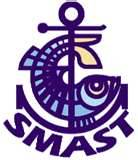 The National Oceanic and Atmospheric Administration has recommended a dozen Massachusetts-based marine research programs receive funding this year including more than $900,000 for UMass Dartmouth to conduct four projects whose aim is to improve the cost-effectiveness and capacity of programs to observe fish. Other Massachusetts research projects recommended for funding include: $497,060 for the Coonamessett Farm Foundation, $774,640 for four New England Aquarium Read the rest here 19:35
The National Oceanic and Atmospheric Administration has recommended a dozen Massachusetts-based marine research programs receive funding this year including more than $900,000 for UMass Dartmouth to conduct four projects whose aim is to improve the cost-effectiveness and capacity of programs to observe fish. Other Massachusetts research projects recommended for funding include: $497,060 for the Coonamessett Farm Foundation, $774,640 for four New England Aquarium Read the rest here 19:35
9 fin whales found dead in Alaska waters near Kodiak in recent weeks
 At least nine fin whales have been found dead in recent weeks in southern Alaska waters, and researchers with the National Oceanic and Atmospheric Administration and University of Alaska Fairbanks are attempting to find out what killed them.The whales were reportedly discovered from Kodiak Island in the Gulf of Alaska to Unimak Pass, which is located near the eastern end of the Aleutian Islands and western tip of the Alaska Peninsula. Read the rest here 19:40
At least nine fin whales have been found dead in recent weeks in southern Alaska waters, and researchers with the National Oceanic and Atmospheric Administration and University of Alaska Fairbanks are attempting to find out what killed them.The whales were reportedly discovered from Kodiak Island in the Gulf of Alaska to Unimak Pass, which is located near the eastern end of the Aleutian Islands and western tip of the Alaska Peninsula. Read the rest here 19:40
Feds find ‘substantial’ amount of pot in raid of Bay St. Louis seafood market
 Agents with the Mississippi Department of Marine Resources, the National Oceanic and Atmospheric Administration, the Hancock County Sheriff’s Office and the Hancock County Sheriff’s Office participated in a joint raid of Cowart Seafood in Bay St. Louis. DMR spokesperson Melissa Scallan said the agents executed a federal search warrant sometime between 8 and 9 a.m. Wednesday. She said Lonnie Mack Ray, 46, who is the owner of the business, of Bay St. Louis, is suspected of violating the Lacey Act, which pertains to interstate commerce involving fish, wildlife or plants. Read the rest here 08:29
Agents with the Mississippi Department of Marine Resources, the National Oceanic and Atmospheric Administration, the Hancock County Sheriff’s Office and the Hancock County Sheriff’s Office participated in a joint raid of Cowart Seafood in Bay St. Louis. DMR spokesperson Melissa Scallan said the agents executed a federal search warrant sometime between 8 and 9 a.m. Wednesday. She said Lonnie Mack Ray, 46, who is the owner of the business, of Bay St. Louis, is suspected of violating the Lacey Act, which pertains to interstate commerce involving fish, wildlife or plants. Read the rest here 08:29
U.S. senators want longer red snapper season, Gulf Council looks at reallocation!
 Despite a letter from U.S. Sen. Bill Nelson and Marco Rubio, the National Oceanic and Atmospheric Administration (NOAA) is not looking to extend the federal recreational red snapper season for 2015. (shoulda known that, fellas) NOAA Southeast Regional Administrator Roy Crabtree predicted one of the items the council will vote on at its August (GMFMC)meeting is moving 390,000 pounds of catching capacity from the commercial sector to recreational, thus extending the season. Read the rest here 20:46
Despite a letter from U.S. Sen. Bill Nelson and Marco Rubio, the National Oceanic and Atmospheric Administration (NOAA) is not looking to extend the federal recreational red snapper season for 2015. (shoulda known that, fellas) NOAA Southeast Regional Administrator Roy Crabtree predicted one of the items the council will vote on at its August (GMFMC)meeting is moving 390,000 pounds of catching capacity from the commercial sector to recreational, thus extending the season. Read the rest here 20:46
NEFMC Groundfish Committee Wants Emergency Action To Suspend Fishing Monitors
The New England Fishery Management Council’s  wants the council to request emergency action from the National Oceanic and Atmospheric Administration. The issue is on the agenda for a June 18 meeting of the council in Newport, Rhode Island. Many groundfishermen say they can’t afforded the added cost of the monitors. The monitors are hired from private companies and their primary job is to collect data about discarded fish. Read the rest here 13:00
wants the council to request emergency action from the National Oceanic and Atmospheric Administration. The issue is on the agenda for a June 18 meeting of the council in Newport, Rhode Island. Many groundfishermen say they can’t afforded the added cost of the monitors. The monitors are hired from private companies and their primary job is to collect data about discarded fish. Read the rest here 13:00
Northeast fishermen call for outside review of fish stock assessments
 The battle over the validity of the National Oceanic and Atmospheric Administration fish stock assessments that continually have led to slashed groundfish quotas has reached a higher pitch, with mounting calls for a third-party assessment of the manner NOAA assesses fish stocks. Under questioning by Sen. Kelly Ayotte, R-New Hampshire, on Wednesday, NOAA administrator Kathryn Sullivan defended the accuracy of the agency’s fish stock assessments,,, (laughing now!) Read the rest here 09:06
The battle over the validity of the National Oceanic and Atmospheric Administration fish stock assessments that continually have led to slashed groundfish quotas has reached a higher pitch, with mounting calls for a third-party assessment of the manner NOAA assesses fish stocks. Under questioning by Sen. Kelly Ayotte, R-New Hampshire, on Wednesday, NOAA administrator Kathryn Sullivan defended the accuracy of the agency’s fish stock assessments,,, (laughing now!) Read the rest here 09:06
Scientists discover that the Opah is a warm blooded fish!
 In a paper published today in Science, researchers from the National Oceanic and Atmospheric Administration (NOAA) describe the unique mechanism that enables the opah, a deepwater predatory fish, to keep its body warm. The secret lies in a specially designed set of blood vessels in the fish’s gills, which allows the fish to circulate warm blood throughout its entire body. Read the rest here 17:21
In a paper published today in Science, researchers from the National Oceanic and Atmospheric Administration (NOAA) describe the unique mechanism that enables the opah, a deepwater predatory fish, to keep its body warm. The secret lies in a specially designed set of blood vessels in the fish’s gills, which allows the fish to circulate warm blood throughout its entire body. Read the rest here 17:21
Affidavit spells out allegations against Maine elver dealer
 William Sheldon is accused of encouraging elver fishermen, some of whom were undercover federal agents, to fish in prohibited areas and of buying elvers that he knew had not been legally harvested. The allegations described in the affidavit constitute violations of the federal Lacey Act, which prohibits interstate transport or transactions of any species of fish or wildlife illegally harvested or handled in any state. According to the document, anyone found guilty of knowingly violating the Lacey Act faces a potential fine of up to $250,000 and as many as five years in prison. Read the rest here 20:43
William Sheldon is accused of encouraging elver fishermen, some of whom were undercover federal agents, to fish in prohibited areas and of buying elvers that he knew had not been legally harvested. The allegations described in the affidavit constitute violations of the federal Lacey Act, which prohibits interstate transport or transactions of any species of fish or wildlife illegally harvested or handled in any state. According to the document, anyone found guilty of knowingly violating the Lacey Act faces a potential fine of up to $250,000 and as many as five years in prison. Read the rest here 20:43
New Tool Aims To Help Scallop Fishery Adapt To Climate Change
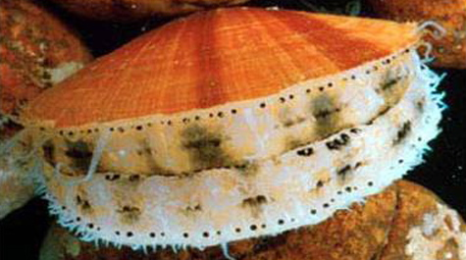 Researchers with the Woods Hole Oceanographic Institution (WHOI), National Oceanic and Atmospheric Administration (NOAA), and the nonprofit Ocean Conservancy that analyzes data on changes in the ocean, the scallop population, and the economy. The tool is unique, according to Jon Hare, director of the NOAA fisheries lab in Narragansett. He said the goal is to give scallop fisheries the chance to prepare for climate change, and “use this model to evaluate how the population would respond to ocean acidification and changes in management.” Read the rest here 12:05
Researchers with the Woods Hole Oceanographic Institution (WHOI), National Oceanic and Atmospheric Administration (NOAA), and the nonprofit Ocean Conservancy that analyzes data on changes in the ocean, the scallop population, and the economy. The tool is unique, according to Jon Hare, director of the NOAA fisheries lab in Narragansett. He said the goal is to give scallop fisheries the chance to prepare for climate change, and “use this model to evaluate how the population would respond to ocean acidification and changes in management.” Read the rest here 12:05
Light up the nets! Easy Solution for Shrimpers and Smelt Alike
 Along with pink shrimp, their nets often scoop up a threatened smelt called eulachon. Many shrimpers worry that the species’ vulnerability could lead to new federal restrictions on their industry. Now scientists in Oregon seem to have hit upon an effective and low-cost solution: Light up the nets. Last July, fisheries biologists Robert Hannah and Stephen Jones of the Oregon Department of Fish and Wildlife and Mark Lomeli of the Pacific States Marine Fisheries Commission chartered a shrimp trawler for an unusual experiment. Read the rest here 20:56
Along with pink shrimp, their nets often scoop up a threatened smelt called eulachon. Many shrimpers worry that the species’ vulnerability could lead to new federal restrictions on their industry. Now scientists in Oregon seem to have hit upon an effective and low-cost solution: Light up the nets. Last July, fisheries biologists Robert Hannah and Stephen Jones of the Oregon Department of Fish and Wildlife and Mark Lomeli of the Pacific States Marine Fisheries Commission chartered a shrimp trawler for an unusual experiment. Read the rest here 20:56
Climate change, acid oceans: NOAA research priorities
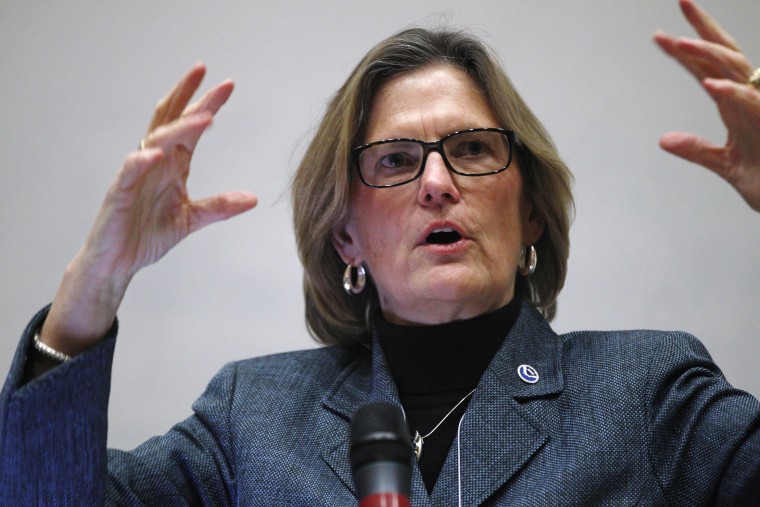 The changing climate and chemistry of our oceans is definitely on radar screens of federal planet watchers. That’s the assurance of Kathryn Sullivan, director of the National Oceanic and Atmospheric Administration. I don’t need to tell Alaskans – you are living it, you see it all around you. And the consequences that have societally, economically, ecologically you all are living it every day. Sullivan calls NOAA the nation’s environmental intelligence agency. (Really?) Audio, and read the rest here 17:47
The changing climate and chemistry of our oceans is definitely on radar screens of federal planet watchers. That’s the assurance of Kathryn Sullivan, director of the National Oceanic and Atmospheric Administration. I don’t need to tell Alaskans – you are living it, you see it all around you. And the consequences that have societally, economically, ecologically you all are living it every day. Sullivan calls NOAA the nation’s environmental intelligence agency. (Really?) Audio, and read the rest here 17:47
NOAA rejects Eubalaena Oculina National Marine Sanctuary request in Atlantic

Fish Distribution: Warmer waters shake up Shore fishing
 “Marine fish are very sensitive to a change in temperature — they can only survive in a narrow range, so they are seeking out cooler waters toward the poles and deeper in the ocean,” he said. “And deeper generally means farther from shore.” As the species shift north, fishing industries are hampered in making adjustments because federal fishing quotas that determine how much of each species can be caught are based on decades-old data. “The regulations are based on the idea that fish distributions are static. Read the rest here 11:06
“Marine fish are very sensitive to a change in temperature — they can only survive in a narrow range, so they are seeking out cooler waters toward the poles and deeper in the ocean,” he said. “And deeper generally means farther from shore.” As the species shift north, fishing industries are hampered in making adjustments because federal fishing quotas that determine how much of each species can be caught are based on decades-old data. “The regulations are based on the idea that fish distributions are static. Read the rest here 11:06
NOAAgate: how ‘ocean acidification’ could turn out to be the biggest con since Trawlgate!
 For years this has been touted by environmentalists as possibly the greatest threat to the planet after “global warming.” According to Jane Lubchenko, the (former) head of the National Oceanic and Atmospheric Administration (NOAA), it is “climate change’s equally evil twin” because of the disastrous consequences it may have for everything from the navigational systems of spawning salmon to the health of coral reefs. Ocean acidification is said to be caused when excess atmospheric carbon dioxide is absorbed by the sea, reducing its pH levels to make it more acidic. Read the rest here 08:02
For years this has been touted by environmentalists as possibly the greatest threat to the planet after “global warming.” According to Jane Lubchenko, the (former) head of the National Oceanic and Atmospheric Administration (NOAA), it is “climate change’s equally evil twin” because of the disastrous consequences it may have for everything from the navigational systems of spawning salmon to the health of coral reefs. Ocean acidification is said to be caused when excess atmospheric carbon dioxide is absorbed by the sea, reducing its pH levels to make it more acidic. Read the rest here 08:02
Waters Warm, and Cod Catch Ebbs in Maine
 In the vast gulf that arcs from Massachusetts’s shores to Canada’s Bay of Fundy, cod was once king.,,“A fisherman’s job isn’t to get an unbiased estimate of abundance. It’s to catch fish,” said Michael Fogarty, the chief of the ecosystem assessment program at the Northeast Fisheries Science Center of the National Oceanic and Atmospheric Administration, the federal agency that monitors sea life. “The world they see is a different world than we see in the surveys.”. Read the rest here 09:48
In the vast gulf that arcs from Massachusetts’s shores to Canada’s Bay of Fundy, cod was once king.,,“A fisherman’s job isn’t to get an unbiased estimate of abundance. It’s to catch fish,” said Michael Fogarty, the chief of the ecosystem assessment program at the Northeast Fisheries Science Center of the National Oceanic and Atmospheric Administration, the federal agency that monitors sea life. “The world they see is a different world than we see in the surveys.”. Read the rest here 09:48

































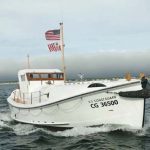
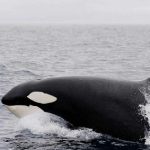
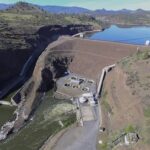


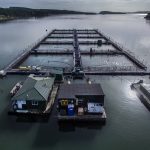

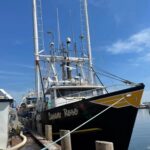
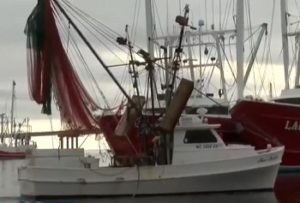
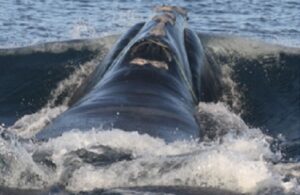




Northeast Regional Planning Body (RPB) releases draft Northeast Regional Ocean Plan
Share this post